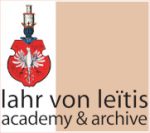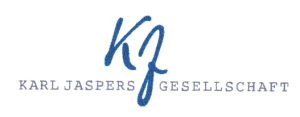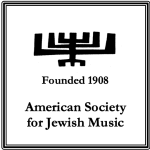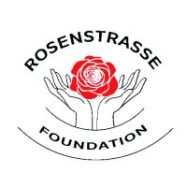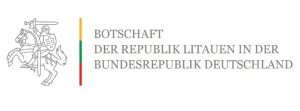March 5, 2024, New York: The World according to Kafka
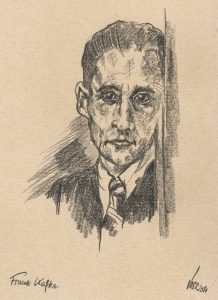
Tuesday, March 5, 2024 at 7.00 pm
Bohemian National Hall
321 East 73rd Street | New York, NY 10021 | USA
The World According to Kafka
A Musical-Literary Collage
commemorating the 100th anniversary of Franz Kafka’s death
Part dramatic reading, part concert, the musical-literary collage The World According to Kafka juxtaposes texts from Franz Kafka’s short stories, diaries, letters, and aphorisms with compositions by his Czech contemporaries as well as Kafka-settings by German contemporary composer Stefan Heucke.
In his stories, Franz Kafka (1883 – 1924) leaves behind the realm of the possible and probable world in order to better understand the real world. His protagonists often are helplessly confronted by anonymous powers; they are imprisoned in a maze without exit. Fear and failure are dominant topics. In vain his protagonists look for a way out. A master of the absurd, Kafka describes the most fantastic events with a clarity and precision, that leads the reader to the limits of thinking. In Kafka’s work the great upheaval of the 20th century is expressed almost like a vision. Like no other author, Kafka describes the emotional framework and living conditions of modernity.
Baritone Peter Kendall Clark will narrate Franz Kafka’s texts. Soprano Jeannie Im will present some of Kafka’s favourite melodies by Friedrich Silcher and Carl Loewe, as well as songs by Czech composers Max Brod, and Adolf Schreiber, and twelve-tone-settings of Kafka’s prose by Stefan Heucke. Elysium’s Music Director Dan Franklin Smith complements the musical selections with piano solo pieces by Antonin Dvořák, Joseph Bohuslav Foerster, Pavel Haas, Leos Janácek, Bohuslav Martinu, Viteslav Novák, Erwin Schulhoff, Bedřich Smetana, Josef Suk and Viktor Ullmann.
Concept & Introduction: Michael Lahr von Leïtis, Artistic Director of Elysium – between two continents.
Presented by the Czech Consulate General New York in cooperation with Elysium – between two continents and The Lahr von Leitis Academy & Archive
Admission: Free
Reservations are required and can be made here
January 30, 2024, Oldenburg: Theater in Exile
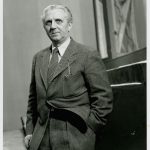
Thursday, January 25, 2024 at 7.00 pm
Karl Jaspers House
Unter den Eichen 22 | 26122 Oldenburg | Germany
Theater in Exile
Lecture and Opening of the Exhibition on Piscator and his Political Theater in Exile
Having fled from Paris to New York to escape the Nazis, the political theater maker Erwin Piscator founded a theater school in exile in the US, where an entire generation of leading actors, directors and playwrights received their training. The last of Piscator’s living students, the legendary singer, actor and activist Harry Belafonte, died in New York last year at the age of 96.
After stops in Bernried, New York, Catania, Munich, Salzburg, Vienna and Berlin, the exhibition “Piscator: Political Theater in Exile” is now opening in Oldenburg. The show focuses on the years of exile – in Moscow, Paris and New York. Piscator’s work there is placed in the context of his Berlin years – the groundbreaking successes and innovations of the young theater revolutionary in the 1920s, and his later work with important world premieres about the Holocaust in the 1960s.
In his lecture at the opening of the exhibition, curator Michael Lahr von Leïtis deals with the difficulties and challenges of exile for theater makers like Piscator and his colleagues, who suddenly had to express themselves in a foreign language and find their way in a culture that was often alien to them.
Presented by the Karl Jaspers Society in cooperation with Elysium – between two continents and The Lahr von Leitis Academy & Archive
January 25, 2024, Munich: A Girl alone on the Run
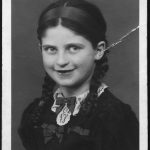

Thursday, January 25, 2024 at 7.00 pm
Münchner Künstlerhaus
Lenbachplatz 8 | 80333 München | Germany
A Girl Alone on the Run
Reading from the memoirs of Eva Szepesi
On the occasion of Holocaust Remembrance Day 2024, Hungarian Holocaust survivor Eva Szepesi will speak at the German Bundestag as one of the last surviving eye-witnesses.
When the Red Army liberated the Auschwitz extermination camp on January 27, 1945, they found an unconscious 12-year-old child among the prisoners left behind: Eva Diamant. The German guards had thought she was dead and left her lying among the other corpses instead of forcing her to go on the death march. Critically ill, she was rescued, but on her return to her home town of Budapest, she discovered that most of her family had been murdered.
Eva Diamant survived the selection on the ramp in Auschwitz because she pretended to be 16. Her persecution began in the spring of 1944, when the Germans invaded Hungary. At the age of eleven, she was sent to Slovakia by her mother and from then on lived on the run, finding shelter with well-meaning people until she was finally captured and deported to Auschwitz.
After the war, Eva Diamant, who later married Holocaust survivor Andor Szepesi, remained silent for fifty years. It was only when she was invited to travel to the former extermination camp to mark the 50th anniversary of the liberation of Auschwitz in 1995 and to be interviewed there by the Shoa Foundation of American director Steven Spielberg that she began to write down her story.
The Bavarian state actress Christine Ostermayer will read from Eva Szepesi’s memoirs.
Introduction: Michael Lahr von Leïtis, Artistic Director of Elysium – between two continents.
Presented by Münchner Künstlerhaus in cooperation with Elysium – between two continents and The Lahr von Leitis Academy & Archive.
We would like to thank Metropol-Verlag Berlin.
December 14, 2023, Berlin: Presentation of the Piscator Lifetime Achievement Award 2023



Thursday, December 14, 2023
Kulturvolk │ Freie Volksbühne Berlin e.V.
Ruhrstraße 6 | 10709 Berlin | Germany
Presentation of the Piscator Lifetime Achievement Award 2023
to Prof. Dr. Peter Raue and Countess Andrea von Bernstorff in recognition of their outstanding commitment to art and culture in Berlin. Both have accomplished great things and exemplified for decades what civic engagement means and can achieve: Prof. Dr. Peter Raue as chairman of the Association of Friends of the National Gallery and Countess Andrea Bernstorff as founder and chairwoman of the Friends of the Hanns Eisler Academy of Music.
The laudatory speech will be given by Thomas Quasthoff.
The actors Hermann Treusch (Artistic Director of the Freie Volksbühne from 1990 to 1992 and honorary member of the Kulturvolk │ Freie Volksbühne Berlin e.V.) and Ulrich Kuhlmann will contextualize the theater innovator Erwin Piscator in texts and poems.
Musical accompaniment by Jillian Finnamore (soprano) and Ben Woodward (piano).
By invitation only.
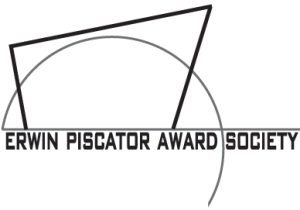
November 2, 2023, New York: 36th Annual Erwin Piscator Awards Dinner


Thursday, November 2, 2023, at 6.30 pm
Lotos Club
5 East 66th Street | New York, NY 10065 | USA
36th Annual Erwin Piscator Award Luncheon
to benefit our International Educational Programs
The playwright and screenwriter Doug Wright will be presented with the 36th Annual Erwin Piscator Award 2023 for his amazing theater and screen plays, that cover a wide range of topics, most notably “I am my own wife” (Tony Award, Pulitzer Prize, Drama Desk, Outer Critics Circle Award and others), “Grey Gardens” (Tony Award nomination), “War Paint”, “Hands on a Hardbody” (Drama Desk nomination), “The Little Mermaid” and “Good Night, Oscar” starring Sean Hayes (Chicago’s Joseph Jefferson Award for Best New Play). His plays and musicals have been seen in over thirty-three countries around the globe. Films include “Quills” and the upcoming “The Burial” starring Jamie Foxx and Tommy Lee Jones.
Heather Randall will receive the Honorary Erwin Piscator Award in memory of Maria Ley Piscator for her enormous dedication and efforts to support theater and education, as a longtime board member of the New York Theatre Workshop, a board member of the Neighborhood Playhouse School of Theatre and US Friends of A Partner in Education, an organization dedicated to the Umubano Primary School in Kigali, Rwanda. Heather is also the founder of G.I.R.L.’s Circle (Girls Inspired by Real Leaders) mentoring and scholarship program for teenage girls in Kigali, Rwanda. Since 2005, Heather Randall has served as Chairperson of the Tony Randall Theatrical Fund. She also has served as a panelist for the National Endowment for the Arts.
Moises Kaufman will give the remarks about Doug Wright. Danny Burstein will introduce Heather Randall.
Admission: $ 500 (tickets are tax-deductible for the full amount less $ 100)
Here you can view the invitation and the response form.
For further information or questions please contact Michael Lahr.

September 13, 2023, Berlin: Naming of Piscator Hall and 35th Annual Erwin Piscator Award Ceremony
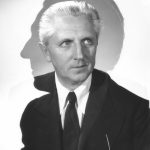

Thursday, September 13, 2023 at 7.00 pm
Kulturvolk / Freie Volksbühne Berlin e.V.
Ruhrstraße 6 | 10709 Berlin | Germany
Naming of the Piscator Hall and Presentation of the 35th Annual Erwin Piscator Award
To this day, neither a street nor a square in Berlin commemorates the work of the important director, artistic director, lecturer and founder of epic and political theater Erwin Piscator. This is now changing. To honor Erwin Piscator, the association Kulturvolk │ Freie Volksbühne Berlin e.V. is naming its event space Piscator Saal. Afterwards, the Erwin Piscator Award Society in conjunction with Elysium – between two continents will award the 35th Erwin Piscator Prize to the great theater and film actor Ulrich Matthes. Mr. Matthes will then read from texts by Erwin Piscator. The evening will end with a reception in the ambience of the exhibition “Piscator: Political Theater in Exile” in the foyer of the Kulturvolk.
Registration requested by email at service@kulturvolk.de or by phone at (030) 86 00 93 – 51/52.
Photo Ulrich Matthes: Florian Nitsch
From November 25, 2022 to December 31, 2023, Berlin: Exhibition:
Erwin and Maria Piscator: Political Theater in Exile
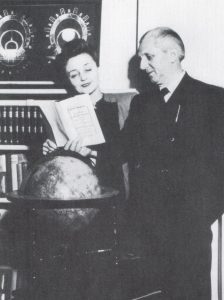
Through DECEMBER 31, 2023, open MO / DO 10 am – 6 pm; DI, MI & FR 10 am – 4 pm
Kulturvolk / Freie Volksbühne Berlin e.V.
Ruhrstraße 6 | 10709 Berlin | Germany
Exhibtion
Erwin and Maria Piscator: Political Theater in Exile
Posters, photographs, documents and letters illustrate Piscator’s importance for the development of theater in the 20th century. In addition to Piscator’s work in Berlin in the 1920s and ’60s, a focus is on his work in exile in New York, where he founded an important acting school with his wife, the dancer and choreographer Maria Ley.
June 15, 2023, Munich: “Come! Into the open, Friend…!” - Paintings by Irene Plößl and Andreas Hirt F. Leïtis, Exhibition opening
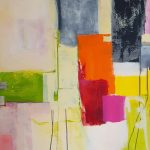
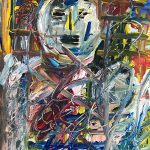
Thursday, June 15, 2023 from 5.00 through 8.00 pm
Elysium between two continents e.V.
Bonner Platz 1 | 80803 München | Germany
“Come! Into the open, Friend…!”
Paintings by Irene Plößl and Andreas Hirt F. Leïtis
Exhibition opening
The exhibition will be on display through June 23 – Viewing by prior arrangement by telephone 0174-955 4879.
Irene Plößl, born in Munich in 1950, studied social pedagogy. Only late she came to painting, completed various painting courses at the art academy Eigenart in Bad Heilbrunn. She works with rock powders, pigments and acrylic paints.
Andreas Hirt F. Leïtis, born in 1965 in Wuppertal, did an apprenticeship as a carpenter after leaving school, then trained as a furniture restorer, worked at the National Museum in Munich under the direction of Johannes Prinz zu Hohenzollern, specialized in setting and gilding figures. In 1990 moved to Berlin and opened his own workshop. At the same time began his painting activities. Later moved to Salzburg and lives for many years in Helmond / Netherlands.
Presented by Elysium – between two continents and The Lahr von Leïtis Academy & Archive
June 8, 2023, Berlin: Erwin and Maria Piscator: Political Theater in Exile - Guided Tour through the Exhibition
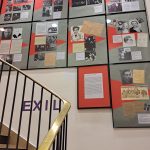
Thursday, June 8, 2023 at 5.00 pm
Kulturvolk / Freie Volksbühne Berlin
Ruhrstraße 6 | 10709 Berlin | Germany
Erwin and Maria Piscator: Political Theater in Exile
Guided Tour through the Exhibition
Curated by Michael Lahr, the exhibition documents the innovative work of Erwin Piscator, the founder of political and epic theater, through letters, photographs, posters and program slips.
After sensational productions in 1920s Berlin, Piscator went to the Soviet Union in the early 1930s to make a film. After the Nazis seized power, he found exile in New York. There he founded the Dramatic Workshop at the New School. A whole generation of famous American actors and playwrights – including Harry Belafonte, Marlon Brando, Judith Malina, Tony Randall, Elaine Stritch and Tennessee Williams – were influenced by Piscator’s school. In 1951, under pressure from McCarthy’s anti-Communist smear campaign, he returned to Germany.
Piscator was not only a great theater artist, but he made his mark in dark times through his life: his passion for militant art forms that challenged the status quo was not slowed by political persecution from the Nazis. Bertolt Brecht once said, “Piscator is the greatest theater man of all time. He will leave a legacy that we should use.”
Presented by Kulturvolk / Freie Volksbühne Berlin
in cooperation with Elysium – between two continents and The Lahr von Leïtis Academy & Archive
June 6, 2023, Oldenburg: Of Paradise and the End of the World - Literary collage of poems, prose texts, theater scenes and letters by Jura Soyfer
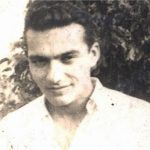
Tuesday, June 6, 2023 at 7.30 pm
Karl Jaspers Gesellschaft e.V.
Unter den Eichen 22 | 26122 Oldenburg | Germany
Of Paradise and the End of the World
Literary collage of poems, prose texts, theater scenes and letters by Jura Soyfer
Under the patronage of Karel Schwarzenberg, former Foreign Minister of the Czech Republic
The enormous political and economic problems of the 1930s led to an ever faster and greater radicalization of the political spectrum. The magnitude and urgency of the crises to be dealt with today – especially the explosive power brought about by rapid inflation in Europe and the U.S. – makes looking back at the 1930s so interesting and important, even though there is no repetition of history in the proper sense.
Despite sometimes gloomy overall analyses, Jura Soyfer always retained an optimistic and humane and loving view of the individual and humanity as a whole.
Jura Soyfer was born on December 8, 1912 in Kharkov (on the territory of today’s Ukraine). He was a permanent contributor to the Wiener Arbeiter-Zeitung since the early 1930s. Most of his poems and articles were devoted to the struggle against fascism. Soyfer warned urgently against the danger of a new war. After the Social Democratic Party was banned in 1934, Jura Soyfer wrote for the underground theaters that were now emerging, such as the “Theater der 49.” He was arrested in November 1937 and released in February 1938 during a general amnesty. With the “Anschluss” and the invasion of Austria by the German Nazis, the regime of terror began to rage there as well. Jura Soyfer was soon arrested and taken to Dachau. In 1938 he was transferred to Buchenwald. On February 16, 1939, at the age of 26, his life came to an end in this cruel hell of fascist barbarism.
Concept & Introduction: Michael Lahr
Gregorij H. von Leitis reads from the works of Jura Soyfer
Presented by the Karl Jaspers Gesellschaft e.V.
in cooperation with Elysium – between two continents and The Lahr von Leïtis Academy & Archive
April 24, 2023, New York: Innovators in Exile III – concert
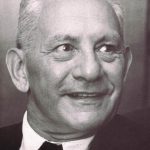
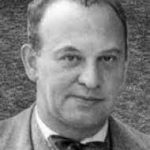
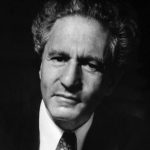
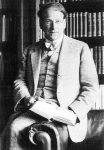
Monday, April 24, 2023 at 6.30 pm
Austrian Cultural Forum
11 East 52nd Street | New York, NY 10022 | USA
Innovators in Exile
The Centenary of the Founding of the International Society for Contemporary Music
Under the patronage of Thomas Hampson
Third Concert
Songs for soprano, tenor, baritone and piano by Wilhelm Grosz, Paul Hindemith, Hugo Kauder, Egon Lustgarten, Paul Pisk, Rudolf Reti, Karl Weigl, and Egon Wellesz
While Paul Hindemith and Egon Wellesz found their footing again after fleeing their native countries, the other promising composers, their careers cut short, struggled financially and eventually fell into complete obscurity.
We want to shed light on these wrongfully forgotten composers and bring them and their beautiful and varied music back to life and onto the stage.
Michael Lahr, concept
Alexis Rodda, musical programming
Jeannie Im, direction
With:
Jeannie Im, soprano
Alexis Rodda, soprano
Bruce Rameker, baritone
Michael Protacio, tenor
Dan Franklin Smith, piano
Admission: free
Reserve tickets here
Presented by Elysium – between two continents and The Lahr von Leïtis Academy & Archive in cooperation with the Leo Baeck Institute, The American Society for Jewish Music, and the Austrian Cultural Forum New York
April 21, 2023, New York: Innovators in Exile II – concert
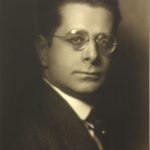
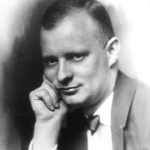
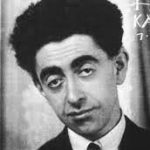

Friday, April 21, 2023 at 7.00 pm
Marc A. Scorca Hall at Opera America
330 Seventh Avenue, 7th Floor | New York, NY 10001 | USA
Innovators in Exile
The Centenary of the Founding of the International Society for Contemporary Music
Under the patronage of Thomas Hampson
Second Concert
Instrumental music for strings and piano by Wilhelm Grosz, Paul Hindemith, Hugo Kauder, Egon Lustgarten, Paul Pisk, Rudolf Reti, Karl Weigl, and Egon Wellesz
“Innovators in Exile” pays special attention to those seven composers among the founders of the International Society for Contemporary Music (ISCM) who found refuge from Nazi persecution in the United States of America and to Egon Wellesz – a driving force for the creation of the ISCM – who fled to England. Some of them carved out new paths of success, while others died in obscurity, financially destitute and disappointed by the course their life had taken.
Some of the pieces are world premieres, and many have not been performed again since they were written and premiered. The idea of the program is to perform such works by these composers that were written after emigration to reflect their American careers, unless a work was influenced in some way by American music before 1938.
Michael Lahr, concept
Alexis Rodda, musical programming
Jeannie Im, direction
With:
Lydia Rhea, cello
Jason Wirth, piano
Shaleah Feinstein, violin
Sam Parrini, violin
Marcus Stevenson, viola
Admission: free – optional $ 10 donation
Reserve tickets here
Presented by Elysium – between two continents and The Lahr von Leïtis Academy & Archive in cooperation with the Leo Baeck Institute, The American Society for Jewish Music, and the Austrian Cultural Forum New York
April 20, 2023, New York: Innovators in Exile I – The Centenary of the Founding of the International Society for New Music in Salzburg – concert
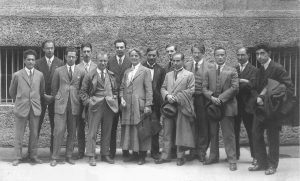
Thursday, April 20, 2023 at 6.30 pm
Leo Baeck Institute, Center for Jewish History
15 West 16th Street | New York, NY 10011 | USA
Innovators in Exile
The Centenary of the Founding of the International Society for Contemporary Music
Under the patronage of Thomas Hampson
First Concert
In 1922, a group of musicians organized a festival in Salzburg to showcase modern music. The photo above (from Egon Lustgarten’s estate in The Lahr von Leitis Archive) shows a portion of the composers who participated in this modern music festival. Seen by some scholars as an attempt to subvert the conservative image of a newly-founded Austria being promoted by the Salzburg Festival, the festival returned in 1923 as the International Society for Contemporary Music, which still exists today.
However, even by 1923, the festival had already earned the ire of anti-modernists, with one reporter calling the participants “musical Bolsheviks.” The majority of those composers would later be exiled – either as Jews or because Nazi ideology linked modernism with Jewishness and communism. Most of these composers, in the midst of or on the precipice of vibrant careers, are now virtually unknown.
Join us in honoring the centennial of the ISCM with three evenings of music from these exiled composers, including Rudolf Reti, Paul Pisk, Karl Weigl, Hugo Kauder, Wilhelm Grosz, Egon Lustgarten, Paul Hindemith, and Egon Wellesz. On April 20th, at the Center for Jewish History, we will kick off the series with chamber works and talks by Michael Haas (exil.arte) and Alexis Rodda (soprano, program coordinator of Elysium Between Two Continents, and independent musicologist).
Michael Lahr, concept
Alexis Rodda, musical programming
Jeannie Im, direction
With:
Jeannie Im, soprano
Alexis Rodda, soprano
Michael Protacio, tenor
Vartan Mailiantz, violin
Tamar Sagiv, cello
Vladimir Rumyantsev, piano
and the Kodak Quartet: Edgar Donati, violin; Martin Noh, violin; Daniel Spink, viola, Blake Kitayama, cello
Admission: free – optional $ 10 donation
Reserve tickets here
Presented by Elysium – between two continents and The Lahr von Leïtis Academy & Archive in cooperation with the Leo Baeck Institute, The American Society for Jewish Music, and the Austrian Cultural Forum New York
March 6, 2023, Berlin: Bravery and Civil Courage. Commemorating the 80th anniversary of the Women’s Protest on Rosenstrasse
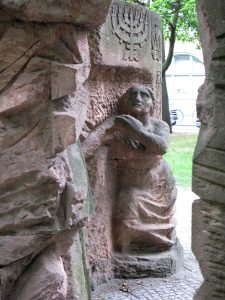
Monday, March 6, 2023 at 5 pm
St. Mary’s Church
Karl-Liebknecht-Strasse 8 | 10178 Berlin | Germany
Bravery and Civil Courage
Commemorating the 80th anniversary of the Women’s Protest on Rosenstrasse
Under the patronage of von Dr. h.c. Charlotte Knobloch,
President of the Jewish Community of Munich and Upper Bavaria and former President of the Central Council of Jews in Germany
On February 27, 1943, the last Jews living in Berlin were to be arrested and deported. In this action, the Jews living in so-called “mixed marriages” were taken to a building of the Jewish community in Rosenstrasse in the heart of Berlin. When the non-Jewish wives learned of their husbands’ arrest, they gathered on Rosenstrasse and protested for a week for their release. Neither threats, nor intimidation, nor machine guns pointed at them could stop these courageous women. In the end, those imprisoned on Rosenstrasse were released.
With undaunted civil courage, these non-Jewish women defied social norms and the terror of the Gestapo from the beginning of National Socialist rule. Their protest was emblematic of their continuous resistance, which began ten years earlier when Hitler came to power. The Gestapo’s practice was to deport Jews living in intermarriages when their partners divorced or died.
These determined, steadfast women showed how ordinary people can demonstrate courage by building their capacity to resist and take risks day after day. 2023 marks the 80th anniversary of this outstanding example of moral courage and resistance.
Speakers:
Dr. Amy Gutmann, Ambassador of the United States of America to Germany and
Eva Menasse, Austrian writer and essayist
Dramatic reading from Nathan Stoltzfus’ book “Resistance of the Heart”; directed by Gregorij H. von Leïtis
followed by the laying of a wreath at the memorial in Rosenstrasse and interdenominational closing prayer
Organized by Elysium – between two continents and The Lahr von Leïtis Academy & Archive in cooperation with:
Leo Baeck Institute – New York | Berlin
Rosenstrasse Foundation
Protestant Church District Berlin Stadtmitte
St. Mary’s Church Berlin
R.S.V.P. by March 2, 2023 via email to elysiumbtc@aol.com
February 16, 2023, Munich: Of Paradise and the End of the World - Literary collage of lyrics by Jura Soyfer
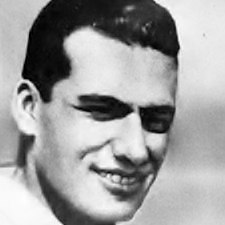
Thursday, February 16, 2023 at 7.00 pm
Church of St. Ursula
Kaiserplatz 1 | 80803 Munich | Germany
Of Paradise and the End of the World
Literary collage of poems, prose texts, theater scenes and letters by Jura Soyfer
Under the auspices of Karl Johannes Prince zu Schwarzenberg, former Foreign Minister of the Czech Republic
The enormous political and economic problems of the 1930s led to an ever faster and greater radicalization of the political spectrum. The magnitude and urgency of the crises to be dealt with today – especially the explosive power brought about by rapid inflation in Europe and the U.S. – makes looking back at the 1930s so interesting and important, even though there is no repetition of history in the proper sense.
Despite sometimes gloomy overall analyses, Jura Soyfer always retained an optimistic and humane and loving view of the individual and humanity as a whole.
Jura Soyfer was born on December 8, 1912 in Kharkov (on the territory of today’s Ukraine). He was a permanent contributor to the Wiener Arbeiter-Zeitung since the early 1930s. Most of his poems and articles were devoted to the struggle against fascism. Soyfer warned urgently against the danger of a new war. After the Social Democratic Party was banned in 1934, Jura Soyfer wrote for the underground theaters that were now emerging, such as the “Theater der 49.” He was arrested in November 1937 and released in February 1938 during a general amnesty. With the “Anschluss” and the invasion of Austria by the German Nazis, the regime of terror began to rage there as well. Jura Soyfer was soon arrested and taken to Dachau. In 1938 he was transferred to Buchenwald. On February 16, 1939, at the age of 26, his life came to an end in this cruel hell of fascist barbarism.
Concept & Introduction: Michael Lahr von Leïtis
Gregorij H. von Leïtis reads from the works of Jura Soyfer
Presented by the Church of St. Ursula Munich
in cooperation with Elysium – between two continents and The Lahr von Leïtis Academy & Archive
February 1, 2023, London: Lew Nussimbaum aka Essad Bey aka Kurban Said
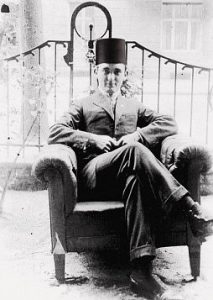
Wednesday, February 1, 2023 at 7.00 pm
Austrian Cultural Forum London
28 Rutland Gate | London SW7 1PQ | United Kingdom
Lew Nussimbaum aka Essad Bey aka Kurban Said
Cosmopolitan – Wanderer between worlds – Jewish Muslim – Orientalist in Exile
Under the auspices of Rabbi Dr. Ismar Schorsch, Chancellor Emeritus of the Jewish Theological Seminary New York
In his short life, the writer Lev Nussimbaum (1905 – 1942) came into contact with all the currents of the early 20th century: Communism, Fascism and National Socialism.
Fleeing from Baku before the October Revolution, he converted from Judaism to Islam in Berlin in 1922 and changed his name to Essad Bey. He soon began to write, especially for Willy Haas’s Die literarische Welt. His first book, Oil and Blood in the Orient, immediately became a bestseller. In rapid succession he published thirteen more books, including biographies of Mohammed, Stalin, and Nicholas II. He fled from the Nazis to Vienna, and finally after the Anschluss to Italy, where he died of a rare disease in Positano in 1942.
Concept & Introduction: Michael Lahr von Leïtis
Gregorij H. von Leïtis reads from the phantastic works of Lew Nussimbaum.
Presented by the Austrian Cultural Forum London
in cooperation with Elysium – between two continents and The Lahr von Leïtis Academy & Archive
Admission free – reservations are required and can be made here.
January 26, 2023, Berlin: Of Paradise and the End of the World - Literary collage of lyrics by Jura Soyfer

Thursday, January 26, 2023 at 6.00 pm
Embassy of the Republic of Lithuania
Charitéstraße 9 | 10117 Berlin | Germany
Of Paradise and the End of the World
Literary collage of poems, prose texts, theater scenes and letters by Jura Soyfer
On the occasion of the International Holocaust Remembrance Day
Under the auspices of Karl Johannes Prince zu Schwarzenberg, former Foreign Minister of the Czech Republic
The enormous political and economic problems of the 1930s led to an ever faster and greater radicalization of the political spectrum. The magnitude and urgency of the crises to be dealt with today – especially the explosive power brought about by rapid inflation in Europe and the U.S. – makes looking back at the 1930s so interesting and important, even though there is no repetition of history in the proper sense.
Despite sometimes gloomy overall analyses, Jura Soyfer always retained an optimistic and humane and loving view of the individual and humanity as a whole.
Jura Soyfer was born on December 8, 1912 in Kharkov (on the territory of today’s Ukraine). He was a permanent contributor to the Wiener Arbeiter-Zeitung since the early 1930s. Most of his poems and articles were devoted to the struggle against fascism. Soyfer warned urgently against the danger of a new war. After the Social Democratic Party was banned in 1934, Jura Soyfer wrote for the underground theaters that were now emerging, such as the “Theater der 49.” He was arrested in November 1937 and released in February 1938 during a general amnesty. With the “Anschluss” and the invasion of Austria by the German Nazis, the regime of terror began to rage there as well. Jura Soyfer was soon arrested and taken to Dachau. In 1938 he was transferred to Buchenwald. On February 16, 1939, at the age of 26, his life came to an end in this cruel hell of fascist barbarism.
Concept & Introduction: Michael Lahr von Leïtis
Gregorij H. von Leïtis reads from the works of Jura Soyfer.
Presented by the Embassy of the Republic of Lithuania in Berlin
in cooperation with Elysium – between two continents and The Lahr von Leïtis Academy & Archive
Admission free – reservations are required and can be made here
December 19, 2022, Berlin: “We are aviators in the fog” – Erwin Piscator’s Letters from Exile
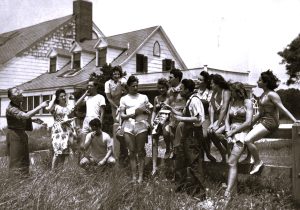
Monday, December 19, 2022 at 6.00 pm
Kulturvolk / Freie Volksbühne Berlin
Ruhrstraße 6 | 10709 Berlin | Germany
„We are aviators in the fog“
Erwin Piscator’s Letters from Exile
America offered Erwin Piscator and his persecuted friends and colleagues protection from the Nazis. But the foreign country presented great challenges to actors, writers, and directors. They had to find their way around in a new language and orient themselves in a cultural scene in which completely different priorities applied. The emigrants had to start from scratch.
Piscator’s letters to other emigrants – Bertolt Brecht and Hanns Eisler, among others – and to his new U.S. contacts – such as Tennessee Williams and Dorothy Thompson – illustrate the hopes and setbacks of life in exile.
Concept & Introduction: Michael Lahr von Leïtis
Gregorij H. von Leïtis reads selected letters by Erwin Piscator.
Presented by Kulturvolk / Freie Volksbühne Berlin e.V.
in cooperation with Elysium – between two continents and The Lahr von Leïtis Academy & Archive
For more info and tickets please click here.
December 17, 2022, Berlin: “Our Death must be a Beacon!” - Letters and Poems by Libertas Schulze-Boysen
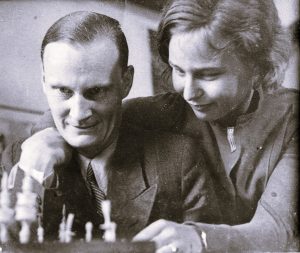
Saturday, December 17, 2022 at 5.30 pm
Church of Maria Regina Martyrum
Heckerdamm 230 | 13627 Berlin | Germany
„Our Death must be a Beacon!“
Letters and Poems by Libertas Schulze-Boysen
Under the patronage of H.R.H. Duchess Elizabeth in Bavaria
80 years ago, Libertas Schulze-Boysen was executed in Plötzensee on December 22, 1942. Together with her husband Harro and the couple Arvid and Mildred Harnack, Libertas Schulze-Boysen formed the core of the resistance group “Rote Kapelle” (Red Orchestra). Women and men, young and old, Christians and Marxists, workers, intellectuals and artists came together here, united by their opposition to the Nazi regime. When the Gestapo discovered the group’s activities in the summer of 1942, over 100 members were arrested within a few months. Over 50 of them were sentenced to death and executed.
After 1945, the history of the “Red Orchestra” was hotly disputed and was often misrepresented and truncated as pro-Soviet and communist. Only access to previously inaccessible materials in archives in Prague and Moscow from the beginning of the 1990s contributed to a differentiated presentation of the work of the Schulze-Boysen / Harnack resistance group.
Libertas Schulze-Boysen, née Haas-Heye, was arrested in Berlin on September 8, 1942. During the three months in prison, she wrote impressive poems that stand out from the childlike, sometimes naïve poems of the youthful Libertas by their seriousness and plain language. The poems, together with the letters to her mother, Countess Victoria zu Eulenburg, paint a picture of a 29-year-old woman who displayed incredible maturity, composure, and wisdom in the face of the overpowering Nazi apparatus and her certain death sentence. She was not a superhuman heroine, but a real person with struggles and weaknesses we all know from our own everyday lives. For this very reason, Libertas Schulze-Boysen’s texts are a great testament to her deep humanity.
The well-known theater and TV actress Christine Ostermayer will read Libertas Schulze-Boysen’s texts.
Anna Viechtl, member of Zafraan Berlin and the Andromeda Mega Express Orchestra, plays the harp.
Concept & Introduction: Michael Lahr von Leïtis
Presented by the Church of Maria Regina Martyum
in cooperation with Elysium – between two continents and The Lahr von Leïtis Academy & Archive
November 25, 2022, Berlin: Erwin and Maria Piscator: Political Theater in Exile
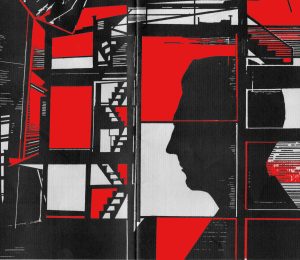
Friday, November 25, 2022 at 5.00 pm
Kulturvolk / Freie Volksbühne Berlin
Ruhrstraße 6 | 10709 Berlin | Germany
Erwin and Maria Piscator: Political Theater in Exile
Exhibition opening
The exhibition will be on display until the end of February 2023
Opening Hours: Monday and Thursday from 10 am until 6 pm; Tuesday, Wednesday and Friday from 10 am until 4 pm
Curated by Michael Lahr, the exhibition documents the innovative work of Erwin Piscator, the founder of political and epic theater, through letters, photographs, posters and program slips.
After sensational productions in 1920s Berlin, Piscator went to the Soviet Union in the early 1930s to make a film. After the Nazis seized power, he found exile in New York. There he founded the Dramatic Workshop at the New School. A whole generation of famous American actors and playwrights – including Harry Belafonte, Marlon Brando, Judith Malina, Tony Randall, Elaine Stritch and Tennessee Williams – were influenced by Piscator’s school. In 1951, under pressure from McCarthy’s anti-Communist smear campaign, he returned to Germany.
Piscator was not only a great theater artist, but he made his mark in dark times through his life: his passion for militant art forms that challenged the status quo was not slowed by political persecution from the Nazis. Bertolt Brecht once said, “Piscator is the greatest theater man of all time. He will leave a legacy that we should use.”
Presented by Kulturvolk / Freie Volksbühne Berlin
in cooperation with Elysium – between two continents and The Lahr von Leïtis Academy & Archive
The exhibition will be on display until the end of February 2023.
November 17, 2022, Munich: "One must not hate!" - Women's voices from Theresienstadt
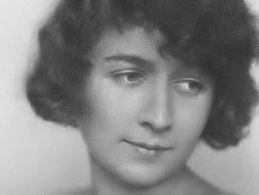
Thursday, November 17, 2022 at 7.00 pm
Künstlerhaus München
Lenbachplatz 8 | D-80333 Munich | Germany
“One must not hate!”Women’s voices from Theresienstadt
The pianist Alice Herz-Sommer and the poet Ilse Weber were deported to the Theresienstadt ghetto and concentration camp in 1942. Alice Herz-Sommer survived the Holocaust, Ilse Weber was murdered in Auschwitz with a group of children she cared for. Their testimony exhorts us to solidarity and humanity.
Reading with the Bavarian state actress Christine Ostermayer.
An event of the Künstlerhaus Munich
In cooperation with Elysium – between two continents and The Lahr von Leïtis Academy & Archive.
November 3, 2022, New York: Innovators in Exile
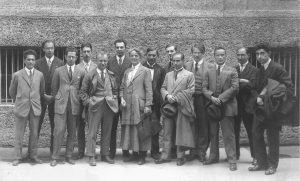
Thursday, November 3, 2022 at 7.00 pm
Austrian Cultural Forum New York
11 East 52nd Street | New York, NY 10022 | USA
Innovators in Exile
100 Years International Society for New Music
Under the auspices of Thomas Hampson
In August 1922, composers from all over the world gathered in Salzburg to present their innovative musical works in a three-day festival. At the end of this avant-garde festival, which was held under the patronage of Richard Strauss, the International Society for New Music was founded, which still exists today. Of the German and Austrian composers present at the time, eight had to emigrate to escape religious and political persecution by the Nazis: Egon Wellesz fled to England, Wilhelm Grosz, Paul Hindemith, Hugo Kauder, Egon Lustgarten, Paul A. Pisk, Rudolf Reti and Karl Weigl went to the USA. Only a few of these promising composers managed to regain their footing financially and professionally in exile. 100 years later, we want to remember these unjustly forgotten composers.
This evening is the kick-off event for a three-day festival that will also feature chamber music works by these composers next April.
Concept: Michael Lahr von Leïtis and Alexis Rodda
Directed by Jeannie Im
Intoduction: Michael Lahr von Leïtis
Sopranos: Alexis Rodda and Jeannie Im
Baritone: Bryan Murray
Piano: Dan Franklin Smith
Presented by the Austrian Cultural Forum New York
in cooperation with Elysium – between two continents and The Lahr von Leïtis Academy & Archive
Reservations can be made via email (events@acfny.org) or phone (+1-212-319-5300).
October 13, 2022, New York: Lew Nussimbaum aka Essad Bey aka Kurban Said
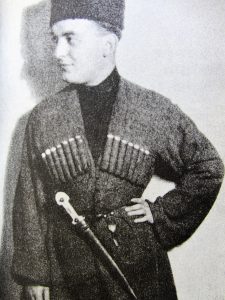
Thursday, October 13, 2022 at 6.30 pm
Leo Baeck Institute New York
Center for Jewish History
15 West 16th Street | New York, NY 10011 | USA
Lew Nussimbaum aka Essad Bey aka Kurban Said
Cosmopolitan – Wanderer between worlds – Jewish Muslim – Orientalist in Exile
Under the auspices of Rabbi Dr. Ismar Schorsch
In his short life, the writer Lev Nussimbaum (1905 – 1942) came into contact with all the currents of the early 20th century: Communism, Fascism and National Socialism.
Fleeing from Baku before the October Revolution, he converted from Judaism to Islam in Berlin in 1922 and changed his name to Essad Bey. He soon began to write, especially for Willy Haas’s Die literarische Welt. His first book, Oil and Blood in the Orient, immediately became a bestseller. In rapid succession he published thirteen more books, including biographies of Mohammed, Stalin, and Nicholas II. He fled from the Nazis to Vienna, and finally after the Anschluss to Italy, where he died of a rare disease in Positano in 1942.
Concept & Introduction: Michael Lahr von Leïtis
Gregorij H. von Leïtis reads from the phantastic works of Lew Nussimbaum
Presented by the Leo Baeck Institute New York
in cooperation with Elysium – between two continents and The Lahr von Leïtis Academy & Archive
Tickets available in advance at https://www.eventbrite.com/e/lew-nussimbaum-aka-essad-bey-tickets-408088502697
October 1, 2022, Vienna: Campaigning for Women’s Rights – Fighting against Fascism
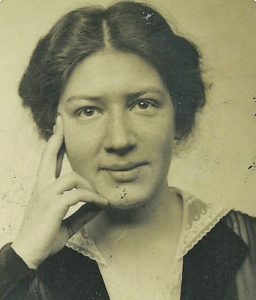
Saturday, October 1, 2022 at 7.00 pm
Exilarte Center at the mdw University for Music and Performing Arts
Lothringer Straße 18 | 1030 Vienna | Austria
Within the framework of the “ORF – Long Night of Musuems”
Campaigning for Women’s Rights – Fighting against Fascism
Remembering social scientist and union organizer Käthe Leichter 80 years after her murder by the Nazis
Under the patronage of Franz Leichter, former State Senator of New York, and Ulrike Sych, President of the University for Music and Performing Arts Vienna
Born in 1895, Käthe Leichter was one of the first Austrian women to get a doctorate in national economics. She worked as an educator of working-class children and later committed her energy to the emancipation of female workers.
When the Austro-Fascists banned the Social Democrats in 1934, Käthe and her husband Otto Leichter fled to Switzerland with their two sons. Soon they returned to Austria to organize the underground union movement. After the “Anschluss” in March 1938, Otto Leichter fled again. Käthe stayed and was arrested soon. Both sons could escape. While Käthe was in prison, her husband kept a diary writing letters to his wife that were never sent. At the end of 1939, Käthe Leichter was deported to the Ravensbrück concentration camp. On March 17, 1942 she was gassed.
Käthe’s and Otto’s writings are testimony to Käthe’s courage and determination. Selections of music by Käthe’s sister Vally Weigl and her husband Karl complement the reading.
Concept & Introduction: Michael Lahr von Leïtis
The Bavarian State Actress Christine Ostermayer will read Käthe Leichter’s texts.
Gregorij H. von Leïtis narrates the letters and diary entries of Otto Leichter.
Soprano Josipa Bainac and Pianist David Hausknecht will perform songs by Karl and Vally Weigl.
Presented by the Exilarte Center
in cooperation with Elysium – between two continents and The Lahr von Leïtis Academy & Archive
Tickets available in advance until September 25, 2022 at https://tickets.ORF.at or at the participating museums and cultural institutions. On the day of the event, tickets are also available at the “Treffpunkt Museum”.
June 14, 2022, Berlin: We are the last, ask us out, we are responsible
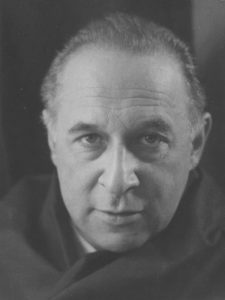
Tuesday, June 14, 2022 at 6:00 p.m.
Embassy of the Republic of Lithuania
Charitéstrasse 9 | 10117 Berlin | Germany
Berlin greets Kaunas, the cultural capital of Europe 2022
We are the last, ask us out, we are responsible
In memory of the numerous Holocaust victims, who were murdered by the Nazis in the IX Fort in Kaunas
The reading from the work of the German-Jewish exile writer Hans Sahl (1902 – 1993) presents memories of an eventful life between the continents, atmospheric images of a fate in emigration, and witty observations of a great contemporary witness of the Jewish intellectual exodus from Germany and Europe.
Critic Fritz J. Raddatz called Hans Sahl “a writer who is worth rediscovering, whose capacity for illuminating snapshots is unparalleled, a literary burning mirror grinder.” In the burning mirror of Hans Sahl, a storyteller, playwright, chronicler, and lyricist, the historical events of the 20th century take on a new vividness. Tender, empathetic observations on human, all-too-human sides of his contemporaries alternate with cheerful, ironic character studies and philosophical meditations on the state of the world.
Born in Dresden in 1902, Hans Sahl studied art and literary history, archaeology and philosophy, and worked as a critic and journalist in Berlin in the 1920s. In 1933 he fled to Paris via Prague and Zurich, and finally participated with Varian Fry in the rescue operation in Marseille for intellectuals and artists who had fled to France from Hitler’s henchmen before he himself escaped on one of the last ships from Lisbon to New York. Against the backdrop of this personal fate, Sahl’s “Memoirs of a Moralist” take on a special poignancy.
Concept & Introduction: Michael Lahr von Leïtis
Reading: Gregorij H. von Leïtis
Presented by the Lithuanian Embassy Berlin
in cooperation with Elysium – between two continents and The Lahr von Leïtis Academy & Archive
Admission: free, afterwards the Lithuanian Embassy invites to a glass of wine
May 16, 2022, Berlin: Lew Nussimbaum aka Essad Bey: Wanderer between Worlds

Monday, May 16, 2022 at 7.30 pm
Kulturvolk / Freie Volksbühne Berlin e.V.
Ruhrstraße 6 | 10709 Berlin | Germany
Lew Nussimbaum aka Essad Bey aka Kurban Said
Cosmopolitan – Wanderer between worlds – Jewish Muslim – Orientalist in Exile
Under the auspices of Rabbi Dr. Ismar Schorsch
Reading from his fantastic work
Born in Kiev, raised in Baku, Lev Nussimbaum fled to Berlin before the Russian Revolution, finally emigrated to Vienna to escape the Nazis, and then on to Italy after the Anschluss: in his short life this fascinating writer came into contact with all the currents of the early 20th century: Communism, National Socialism, and Fascism.
80 years ago, on August 27, 1942, the Oriental expert Essad Bey died in Positano, impoverished and lonely, of a rare disease. Only his Baltic-German nanny Alice Schulte was with him. She knew him from his earliest childhood. Essad Bey was born Lev Nussimbaum in Kiev on October 20, 1905. Lev’s father was the wealthy Azerbaijani-based Jewish oil magnate Abraham Nussimbaum, Lev’s mother was Berta Slutsky from Shklov (Belarus), related to the extensive Leites/Leitis clan through her aunt Olga Leites. While Lev’s father made a fortune from the oil boom in Baku, his mother sympathized with the Bolshevik social revolutionaries and secretly supported the young Stalin. When Lev was just six years old, his mother commits suicide, possibly because she can no longer stand the contradictions of her own existence. Traumatized and ailing, young Lew withdraws and spends hours in his parents’ library.
In 1918, when the October Revolution swept through Baku, father and son fled, first to Persia, then across the Caucasus to Istanbul, and from there to Berlin via Paris. Lev Nussimbaum attended the Russian exile high school and enrolled in Arabic and Turkish literature at the Humboldt University. In 1922 he converted to Islam.
In the Berlin literary scene he met Else Lasker-Schüler, Vladimir Nabokov and Boris Pasternak and soon began to write, especially for “Die literarische Welt” by Willy Haas. His first book, “Oil and Blood in the Orient,” appeared in 1929 and immediately became a bestseller. In quick succession, he published 13 more books, including a biography of the Prophet Mohammed that is still recognized today, as well as biographies of Stalin, Lenin and Nicholas II. While some esteemed him as a proven expert on the Orient, others soon slandered him as a Jewish history swindler. The Islamic community in Berlin distanced itself from him. The Communists rejected his works criticizing the Soviet Union as undialectical and reactionary. Lev Nussimbaum, alias Essad Bey sits between all chairs. “Who is this Essad Bey?” asked Leon Trotsky in a letter in 1932.
In 1936, when he was already banned from publishing in Germany, Essad Bey published the novel “Ali and Nino” in Vienna under the pseudonym Kurban Said, a tragically ending love story between the descendant of a noble Muslim family from Azerbaijan and a Christian princess from Georgia, a Romeo and Juliet story set at the interface between Islam and Christianity.
When Vienna, too, no longer offered protection for the unmasked Essad Bey after the Anschluss, he fled to Italy. Lev Nussimbaum’s father Abraham, left behind in Vienna, was deported and died in the Belzec extermination camp. Despite considerable pain, Essad Bey continued to write another novel, “The Man Who Knew Nothing About Love,” until the end. When black limousines pulled up in front of Essad Bey’s apartment in Positano at the end of August 1942, eyewitnesses believed the two men had come to pick him up and take him to a concentration camp. In truth, they were employees of the Italian Ministry of Propaganda who wanted to offer the “Muslim” a lucrative position.
Michael Lahr von Leïtis traces Lev Nussimbaum’s unusual life in his introduction
Gregorij H. von Leïtis reads from Nussimbaum’s fantastic work
Presented by Kulturvolk / Freie Volksbühne Berlin e.V.
in cooperation with Elysium – between two continents and The Lahr von Leïtis Academy & Archive
Admission: 18 €, 15 € (for members of Freie Volksbühne Berlin e.V.)
March 31, 2022, New York: Erwin Piscator's Legacy Lives On. Conversations about Theatre, Music and Politics
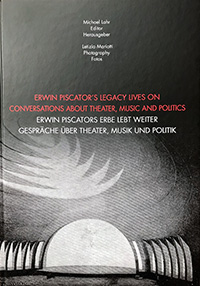
Tuesday, March 31, 2022 at 6.00 pm
1014 Space for Ideas
1014 Fifth Avenue | New York, NY 10028 | USA
Erwin Piscator’s Legacy Lives On.
Conversations about Theatre, Music and Politics
Book Talk followed by a reception
Bertolt Brecht said: “Piscator is the greatest theater man of all time. He will leave a legacy that we should use.”
- What is Piscator’s legacy?
- Are Piscator’s ideas still valid today?
- What significance do political and social issues have on stage today?
- What is the relationship between arts and politics?
Michael Lahr von Leïtis explores these and similar questions in his book. His interview partners are 15 illustrious artists, all of them recipients of the Erwin Piscator Award, and Grgorij von Leïtis, founder of the Piscator Award.
New York-based French photographer Letizia Mariotti did impressive portraits of all the interviewees: Lee Grant, Judith Malina, Robert Wilson, William Hoffman, Marshall Mason, Ellen Burstyn, Kurt Masur, Martina Arroyo, Thomas Hampson, André Bishop, Harold Prince, John Guare, Bartlett Sher, James Nicola, J.T. Rogers, Gregorij von Leïtis
Presented by Elysium – between two continents and The Lahr von Leïtis Academy & Archive in cooperation with 1014 Space for Ideas
Please R.S.V.P. by sending an e-mail to elysiumbtc@aol.com
March 24, 2022, New York: Piscator Award to Piotr Beczala

Thursday, March 24, 2022 at 12.30 pm
Lotos Club
5 East 66th Street | New York, NY 10065 | USA
Star tenor receives Piscator Award certificate 2020
Two years ago, Piotr Beczala was to receive the 33rd Erwin Piscator Award at the Lotos Club in New York for his outstanding artistic achievements as one of the world’s leading tenors and his authentic portrayal of every character he embodies on stage. The invitations had been sent out, the preparations were in full swing. But the outbreak of the Covid 19 foiled our plans. The awards ceremony had to be canceled.
On March 24, we finally can present the award certificate to Piotr Beczala during an exclusive luncheon with good friends and supporters of Elysium – between two continents at the Lotos Club.
Presented by the Erwin Piscator Award Society
in cooperation with Elysium – between two continents and The Lahr von Leïtis Academy & Archive
By invitation only
March 16, 2022, New York: Campaigning for Women’s Rights – Fighting against Fascism

Wednesday, March 16, 2022 at 7.30 pm
Austrian Cultural Forum New York
11 East 52nd Street | New York, NY 10022 | USA
Campaigning for Women’s Rights – Fighting against Fascism
Remembering social scientist and union organizer Käthe Leichter 80 years after her murder by the Nazis
Under the patronage of Franz Leichter, former State Senator of New York
Born in 1895, Käthe Leichter was one of the first Austrian women to get a doctorate in national economics. She worked as an educator of working-class children and later committed her energy to the emancipation of female workers.
When the Austro-Fascists banned the Social Democrats in 1934, Käthe and her husband Otto Leichter fled to Switzerland with their two sons. Soon they returned to Austria to organize the underground union movement. After the “Anschluss” in March 1938, Otto Leichter fled again. Käthe stayed and was arrested soon. Both sons could escape. While Käthe was in prison, her husband kept a diary writing letters to his wife that were never sent. At the end of 1939, Käthe Leichter was deported to the Ravensbrück concentration camp. On March 17, 1942 she was gassed.
Käthe’s and Otto’s writings are testimony to Käthe’s courage and determination. Selections of music by Käthe’s sister Vally Weigl and her husband Karl complement the reading.
Concept & Introduction: Michael Lahr von Leïtis
Jeannie Im will read Käthe Leichter’s texts.
Gregorij H. von Leïtis narrates the letters and diary entries of Otto Leichter.
Soprano Alexis Rodda and Pianist Dan Franklin Smith will perform songs by Karl and Vally Weigl.
Presented by the Austrian Cultural Forum New York
in cooperation with Elysium – between two continents and The Lahr von Leïtis Academy & Archive
Admission is free – but RSVP is required.
To RSVP please e-mail events@acfny.org with your name, number of tickets and name of the event you want to attend.
January 27, 2022, Munich: The Price of Concord - Lecture and reading on the occasion of the International Holocaust Remembrance Day

Thursday, January 27, 2022 at 6.30 pm
Künstlerhaus München
Lenbachplatz 8 | 80333 Munich | Germany
“The Price of Concord”
Lecture and reading on the occasion of the International Holocaust Remembrance Day
Under the patronage of Dr. Felix Klein, Germany’s Federal Government Commissioner for Jewish Life in Germany and the fight against anti-Semitism
The famous Lithuanian theater critic and historian Markas Petuchauskas survived the Vilnius ghetto. In his memoirs, he describes survival under Nazi occupation and Soviet rule in Lithuania and tells of people who remained people during the tragic events of the 20th century, under two occupation regimes.
A special feature of the Vilnius ghetto was the theater, which was created by the artists in a heroic feat of strength. Because of the theater, the ghetto became a spiritual and emotional focal point of resistance to the Nazis.
Markas Petuchauaskas’ memoirs are a call for reconciliation and a reminder to remember and learn from history.
Gregorij von Leitis, whose family itself comes from Lithuania, will read excerpts from Markas Petuchauskas’ book.
Introduction: Michael Lahr von Leïtis
Presented by the Künstlerhaus München
in cooperation with Elysium – between two continents and The Lahr von Leïtis Academy & Archive
Admission: € 10
Reduction for pupils, students and guests with severe disabilities upon presentation of ID.
